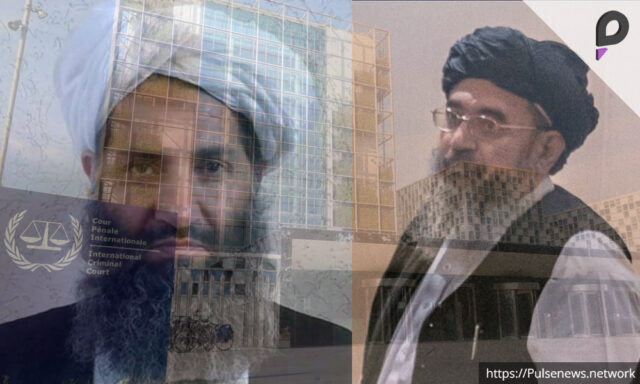The Hague: The International Criminal Court (ICC) is seeking arrest warrants for Taliban leaders accused of gender-based crimes. The request highlights the ongoing repression of women’s rights in Afghanistan, especially since the Taliban regained control in 2021.
Criminal Responsibility
The ICC has identified two prominent Taliban figures: Haibatullah Akhundzada, the Taliban’s Supreme Leader, and Abdul Hakim Haqqani, the Chief Justice. The ICC claims there is sufficient evidence to hold them criminally responsible for persecuting Afghan girls and women.
Human Rights Violations
The chief prosecutor of the ICC, Karim Khan, stated that the Taliban’s actions toward women and gender minorities have been harmful. He outlined that persecution based on gender has escalated since the Taliban’s return to power, with harsh enforcement of strict gender roles.
Khan also emphasized the Taliban’s brutal suppression of opposition. Such tactics include murder, imprisonment, torture, and sexual violence against those opposed to the regime.
Prosecutor Plans Further Legal Actions
While arrest warrants for Akhundzada and Haqqani have been requested, approval from a judge is still pending. Additionally, the ICC prosecutor plans to seek further warrants against other senior Taliban officials.
Afghan Women and Human Rights Groups Respond
Afghan women and activists have voiced strong support for the ICC’s actions, seeing it as a step toward justice. One activist, who anonymously teaches girls in rural Afghanistan, expressed hope that the world is listening.
Oppressive Rules for Women Since Taliban’s Return
Since August 2021, the Taliban has imposed strict rules erasing women from public life. The group promised moderation but has since imposed extreme restrictions.
Educational and Professional Setbacks for Women
Under Taliban rule, women have been banned from universities and secondary schools. Many have also been barred from working with NGOs and international organizations, including the United Nations.
New Laws Stripping Basic Freedoms
In a new decree, the Taliban ordered that new buildings be constructed with walls blocking views of women. Existing windows in buildings have also been ordered to be covered or walled up. This ban reflects the Taliban’s desire to minimize women’s visibility in public spaces.
Ongoing Humanitarian Crisis in Afghanistan
The humanitarian situation for women and girls in Afghanistan remains dire, with no end in sight. Many live under constant threat of violence and persecution, and the world watches in silence.
Pressure on Global Community
The ICC’s efforts bring the situation to the forefront of international discussion. However, without enforcement mechanisms, the success of these warrants depends on global support. The ICC calls for nations to collaborate in detaining the accused individuals.
Continued Global Efforts to Combat Gender Persecution
The ICC’s actions serve as a reminder to the global community about the importance of protecting human rights, especially for marginalized groups. The call for justice echoes worldwide as women continue to face violence and discrimination under Taliban rule.











